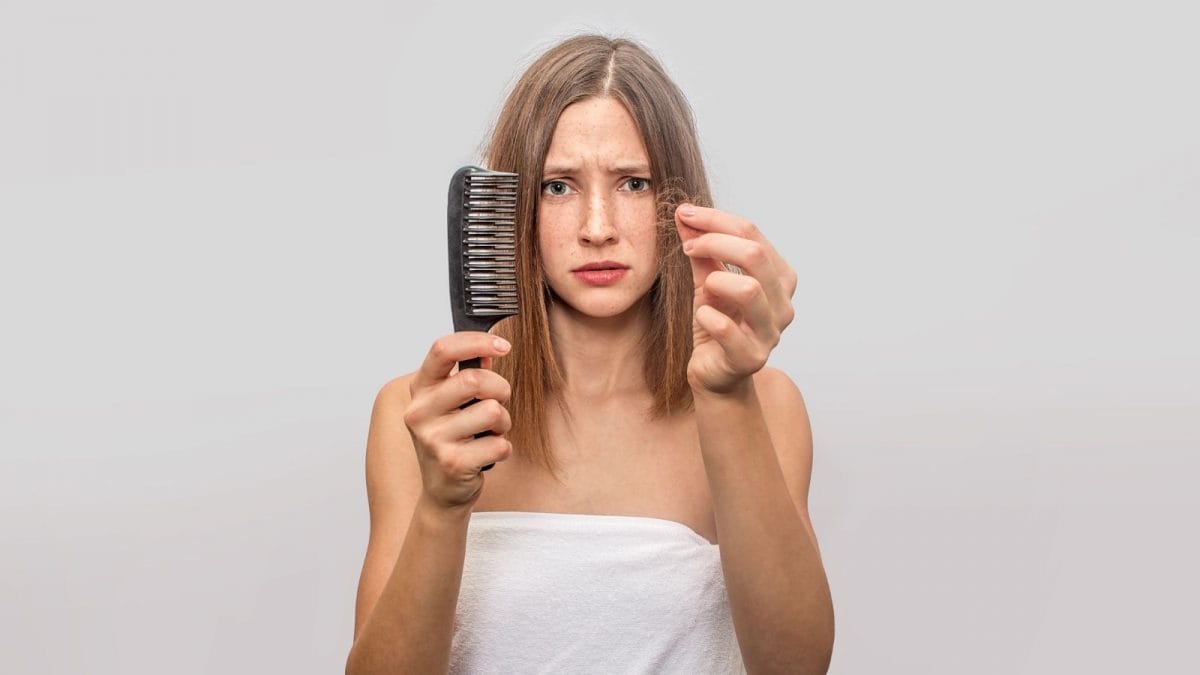Last Updated:
Medical experts caution that while seasonal hair fall is often temporary, neglecting continuous or excessive shedding may delay the detection of conditions that require treatment

Post monsoon hairfall: Experts note that this seasonal shedding is a common occurrence, but it can also be compounded by a variety of underlying health and lifestyle factors.
Dermatologists often observe a marked increase in complaints of hair fall during the post-monsoon months, with September being a particularly noticeable period. Experts note that this seasonal shedding is a common occurrence, but it can also be compounded by a variety of underlying health and lifestyle factors.
Causes of Post-Monsoon Hair Fall
Dr. Priyanka Aggarwal, Consultant Dermatologist, Narayana Hospital, Gurugram explains that while changes in humidity and environmental conditions during the monsoon can temporarily weaken hair roots, several internal factors play a significant role in hair loss:
Stress: Both physical and emotional stress, whether from demanding work schedules, poor sleep, illness or recovery from surgery, can disrupt the normal growth cycle of hair, leading to increased shedding.
Nutritional deficiencies: Low levels of essential nutrients such as vitamin D, vitamin B12, biotin, iron and protein are commonly associated with thinning hair and poor scalp health.
Hormonal disorders: Conditions like thyroid imbalances and polycystic ovary syndrome (PCOS) are recognised causes of persistent hair fall, particularly among women.
Postpartum hair loss: Many women experience excessive hair shedding after pregnancy, a temporary condition driven by hormonal shifts.
Genetic factors: Androgenetic alopecia, more commonly known as male or female pattern hair loss, is a hereditary condition that tends to become more evident with age and seasonal triggers.
Approaches to Treatment and Prevention
Doctors recommend a combination of lifestyle adjustments, dietary improvements and, when required, medical consultation to address hair fall:
Lifestyle modifications: Stress management is key. Regular exercise, yoga, meditation and reducing prolonged screen time can help restore balance to the hair growth cycle.
Nutritional support: A diet rich in protein, omega-3 fatty acids, iron and vitamins is crucial. Plant-based proteins such as soya, sprouts and paneer can benefit vegetarians, while eggs, lean meats and fish provide additional options for non-vegetarians.
Supplements and topical treatments: Over-the-counter options such as biotin supplements and peptide-based serums may help in mild cases of hair fall.
Professional advice: Persistent or severe shedding should not be ignored. Consulting a dermatologist ensures that underlying medical conditions are identified and treated appropriately, with personalised treatment plans offered for long-term results.
Medical experts caution that while seasonal hair fall is often temporary, neglecting continuous or excessive shedding may delay the detection of conditions that require targeted treatment. They encourage individuals experiencing significant hair loss to seek professional care rather than relying solely on home remedies.

Swati Chaturvedi, a seasoned media and journalism aficionado with over 10 years of expertise, is not just a storyteller; she’s a weaver of wit and wisdom in the digital landscape. As a key figure in News18 Engl…Read More
Swati Chaturvedi, a seasoned media and journalism aficionado with over 10 years of expertise, is not just a storyteller; she’s a weaver of wit and wisdom in the digital landscape. As a key figure in News18 Engl… Read More
September 06, 2025, 18:28 IST







